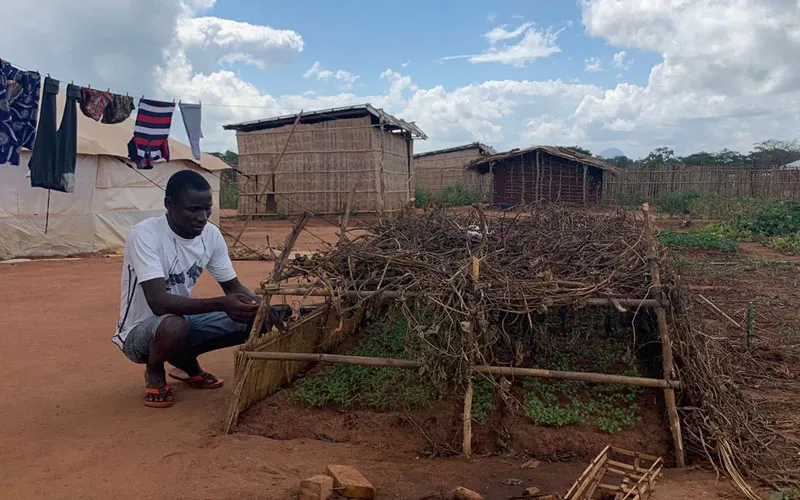The official of the SACBC peace entity says that in the previous century, the industrial revolution was largely driven by rubber, a substance that was extensively used in the automotive industry. The product is found in abundance in the DRC.
He continues, “The world was shocked to see photos of Congolese villagers enslaved to extract rubber from trees, given daily quotas, and who had their hands severed if they did not deliver their quota.”
The DHPI Director says that in the modern version of the rubber atrocity, multimillion dollar extractive industry installations provide developed country industries with the minerals and raw materials they need to increase their own wealth, “while the indigenous communities that were forcefully displaced to make way for the installations, languish in tents, without food, water or medical attention.”
Those who have been displaced to pave way for these multimillion-dollar companies are languishing in “reception centres” or squatter settlements around the major local urban centre in DRC, Mr. Viljoen says.
In his message ahead of the World Refugee Day, Mr. Viljoen notes that the refugee crisis in Africa is getting worse and that refugees continue to live in deplorable conditions across the world.
(Story continues below)
He makes reference to the UNHCR statistics indicating that there are currently around 80 million refugees globally, saying, “This figure does not include internally displaced persons.”
“Only those who have crossed an international frontier and have fled to another country. The individual suffering gets lost behind the statistics and the sheer magnitude of the numbers,” the DHPI official says.
He urges those with privilege to remember that every one of the 80 million “is a human being, created in the image of God, who has lost everything, house, family, friends, livelihood.”
Mr. Viljoen notes that most displaced people have faced unimaginable horrors in their place of origin, and almost insurmountable difficulties to get where they are.
“The situation across Africa continuously deteriorates,” he says, and adds, “In Cabo Delgado, Mozambique, rural villagers have seen their houses and crops burned down, their relatives killed, often beheaded, and have fled without food or water for distances of up to 200 km on foot through the bush, or spent days on the open sea in overcrowded fishing boats.”
The official of the peace entity that is monitoring the evolution of violence in a number of other Africa countries observes, “We have seen humanitarian catastrophes emerge in Ethiopia and, most recently, in the South East of Nigeria. These are the new crises; there is still no relief in sight in ongoing crises like the Eastern Democratic Republic of Congo or South Sudan.”
According to the DHPI official, donor fatigue has compromised the delivery of humanitarian assistance.
“So, for example, UN agencies have launched constant appeals to member states to respond to the crisis in Northern Mozambique, they have, however, still managed to raise only a fraction of the funding required,” he says.
Host countries are also increasingly failing to honor their obligations under international law and treaties, Mr. Viljoen says, and gives the example of Tanzania where authorities have refused entry to civilians fleeing violence in Cabo Delgado.
“We have heard of more than 9,000 Mozambicans being denied refugee status in Tanzania, and being sent back to Cabo Delgado,” he says.
The DHPI Director calls on the international community to respond with generosity to appeals for humanitarian assistance for refugees and the displaced.
He makes another appeal to countries to observe their obligations under international law and treaties to provide protection to refugees.
“But above all, we call on civil society to work fearlessly to expose the causes of conflict in Africa – the international interests and the local leaders that continue to profiteer from African conflicts,” the DHPI official says, and explains, “Unless we address the root causes of conflict, and stop wars in Africa, we will be commemorating World Refugee Day for many years to come.”
Agnes Aineah is a Kenyan journalist with a background in digital and newspaper reporting. She holds a Master of Arts in Digital Journalism from the Aga Khan University, Graduate School of Media and Communications and a Bachelor's Degree in Linguistics, Media and Communications from Kenya's Moi University. Agnes currently serves as a journalist for ACI Africa.





